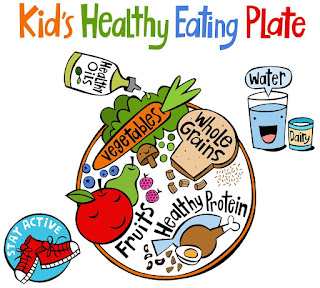Healthy Eating Blog

As a parent, the nutritional needs of your baby or toddler are obviously a priority, and it’s easy to feel overwhelmed by the amount of differing information out there. The food a child eats in their early years can influence their dietary habits later in life, so it’s important to instill good habits and a healthy relationship with food from an early age. But lots of times parents come up against lots of challenges when it comes to getting their children to eat healthy. It is important for parents to make small changes rather than big changes and remember to be patient! Positive encouragement is key! Telling the child that they are doing great and getting so big and strong will encourage the child. Avoid any negativity when it comes to feeding time. Try not to overwhelm children too much or pressure them into eating food. This will give them a negative outlook on food. Here are some tips that might help: Avoid children grazing and drinking juices thro...




